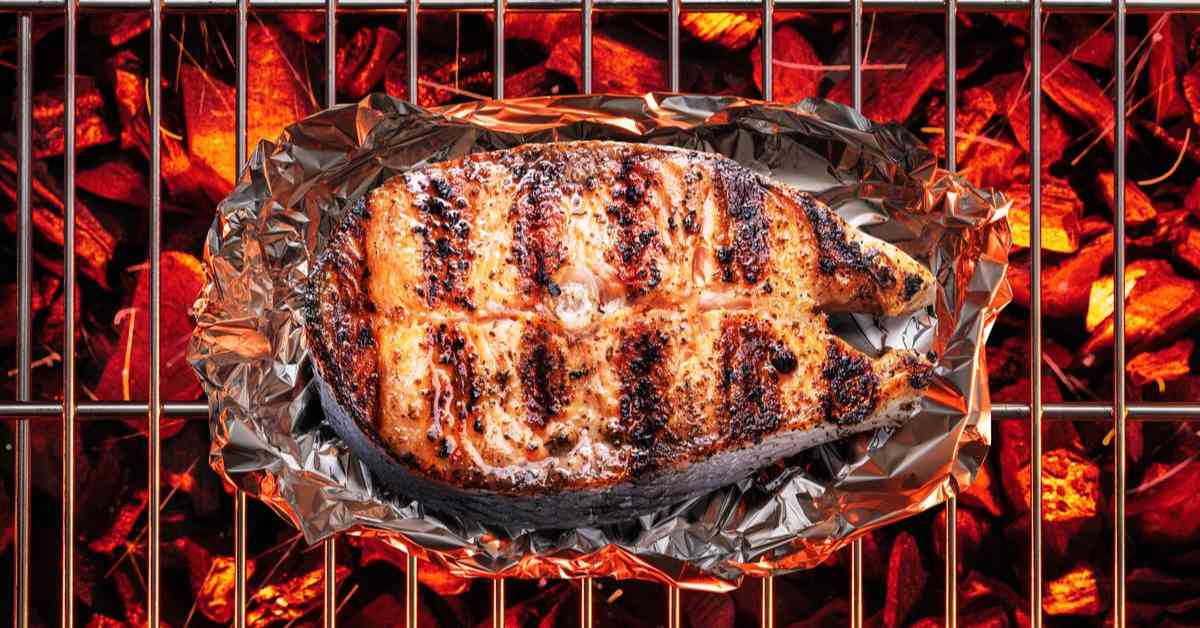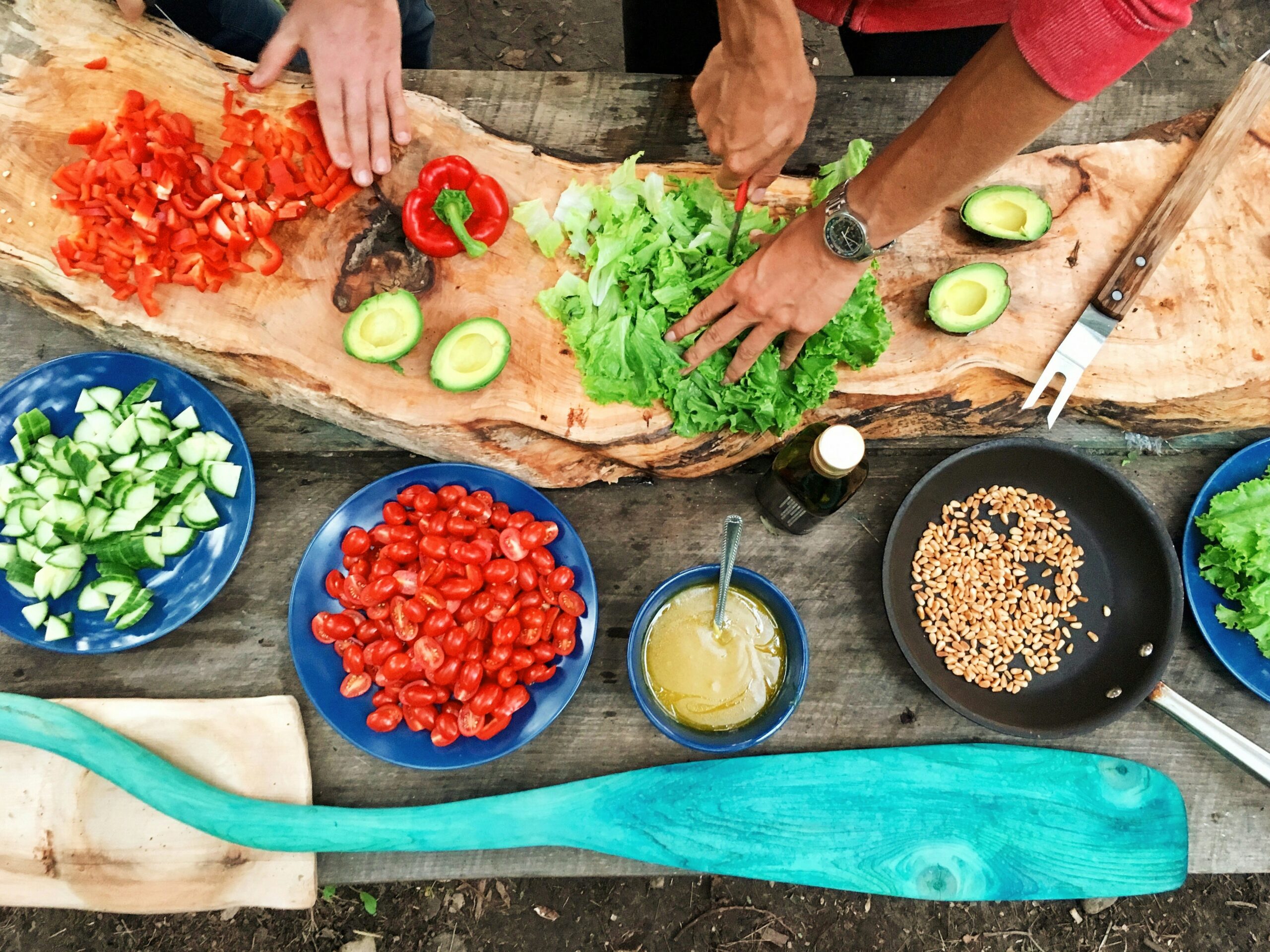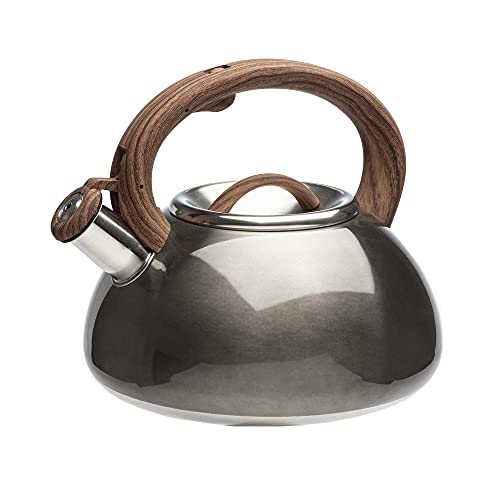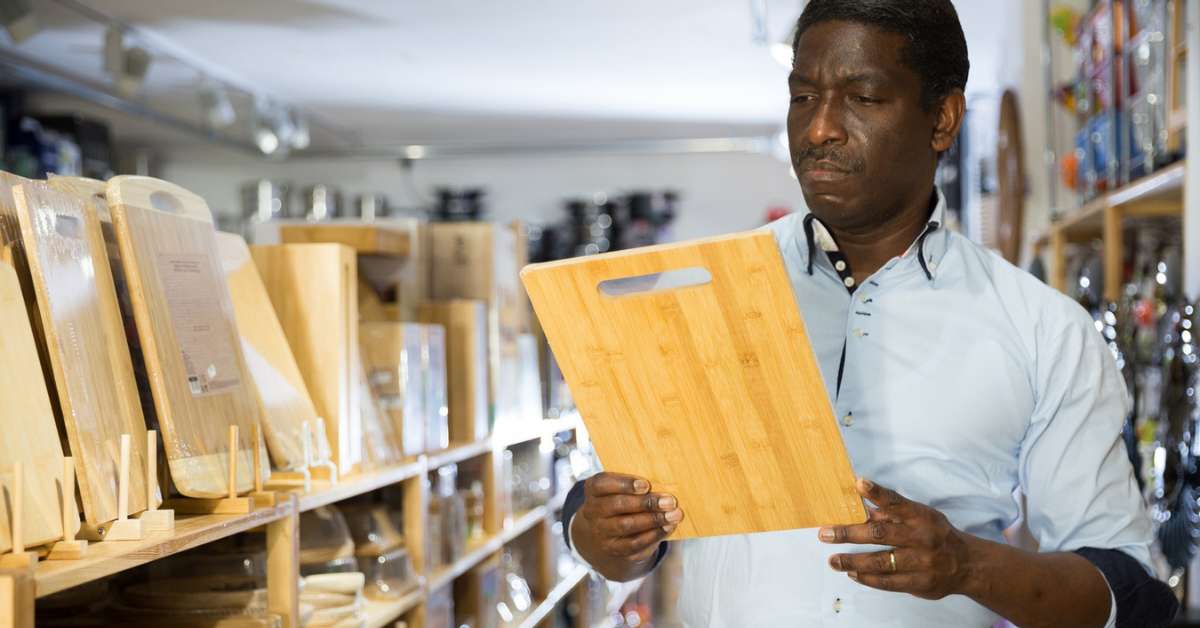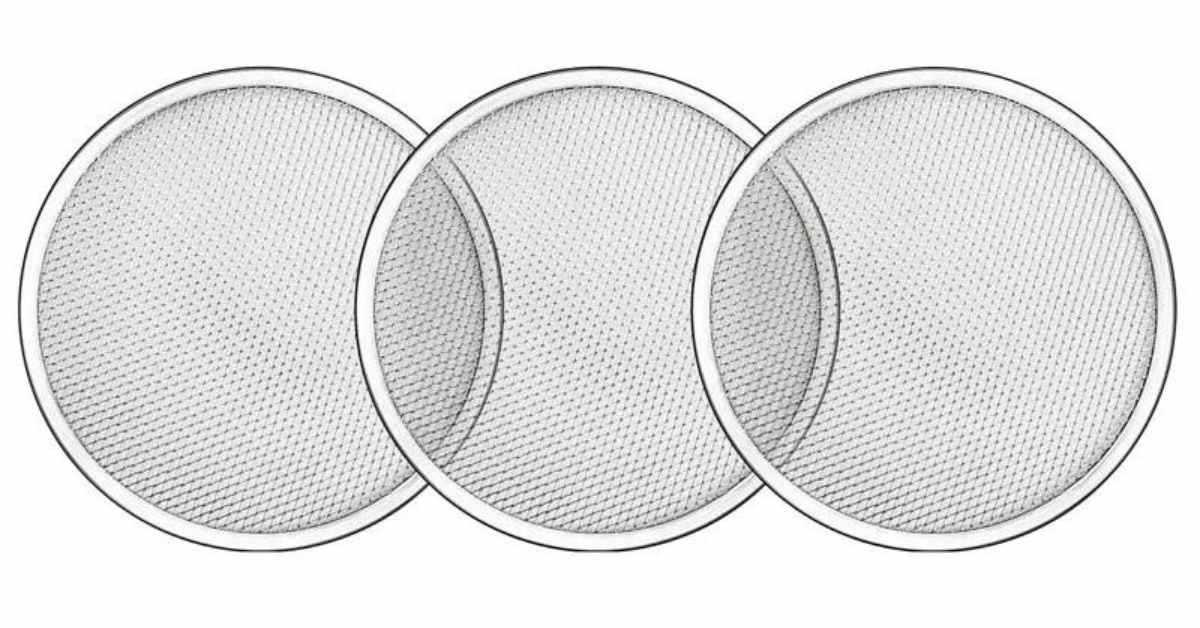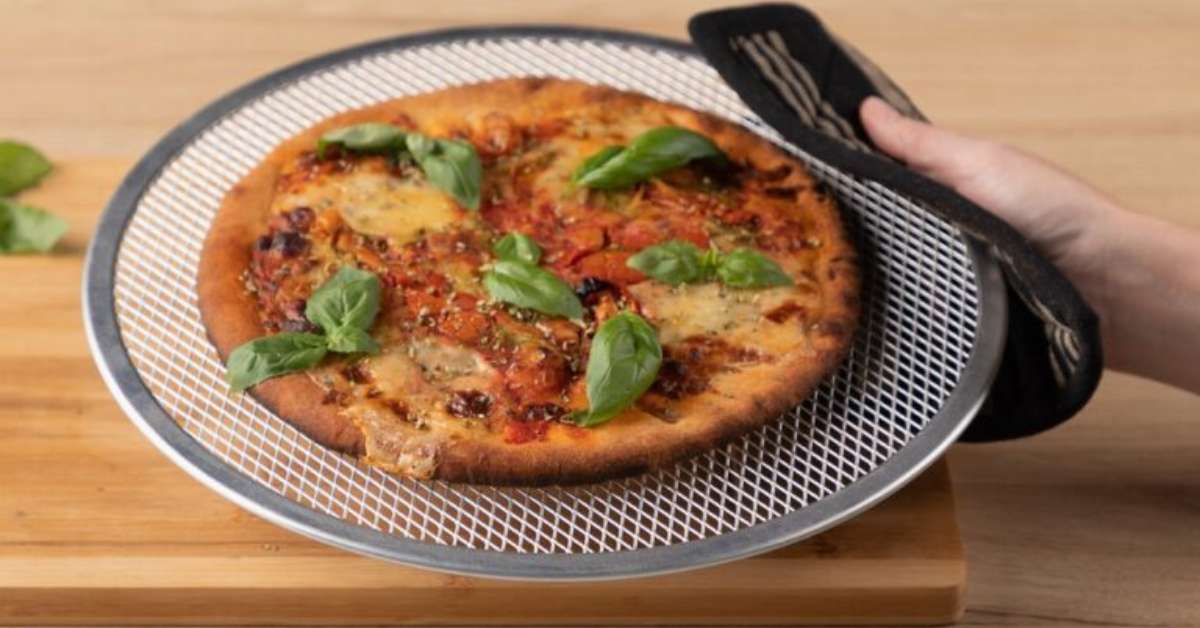This informative article delves into a common question that has often left enthusiasts scratching: Can you put aluminum foil on charcoal grill? You’ve come to the right place if you love grilling and are curious whether aluminum foil is safe and effective.
We’ll provide a definitive answer backed by the latest information available as of 2023. Whether you’re a seasoned griller or just starting, understanding the dos and don’ts of using aluminum foil on your charcoal grill is essential for a successful and enjoyable cooking experience. So, let’s get ready to uncover the truth and put those grilling myths to rest!
Table of Contents
ToggleWhat is a Charcoal Grill
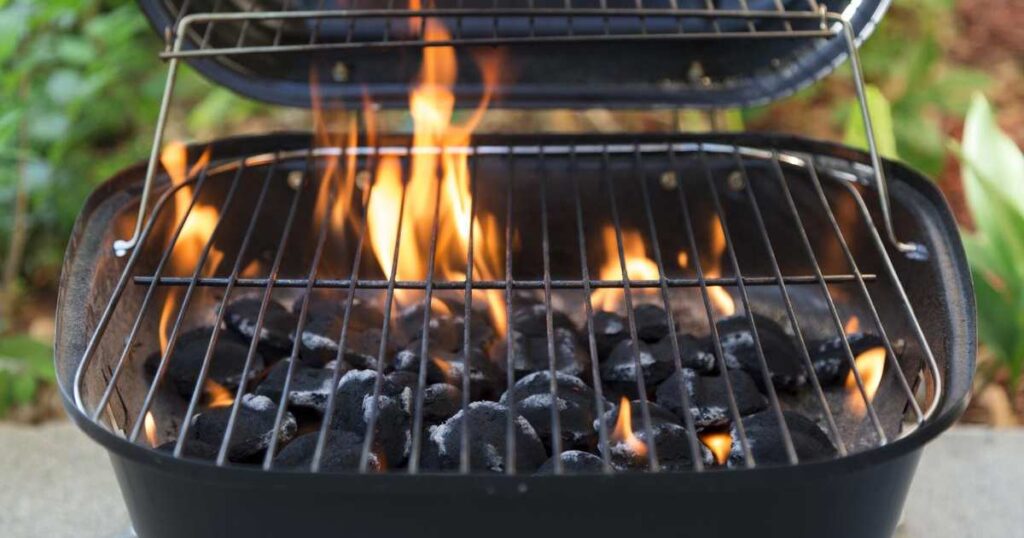
A charcoal grill is a classic and time-tested outdoor cooking apparatus that is a staple for worldwide grilling enthusiasts. It consists of a bowl or kettle-shaped container made of metal, typically cast iron or steel, with a sturdy grate placed above the charcoal bed. Charcoal briquettes or lump charcoal are commonly used as the fuel source for these grills.
One can use lighter fluid or a chimney starter to get the fire going, which is considered safer and more eco-friendly. Once the coals are ready and glowing, they provide the perfect medium for cooking various types of food, infusing them with that unmistakable smoky flavor that makes charcoal grilling unique.
What sets charcoal grills apart is their versatility. They allow for both direct and indirect cooking methods, providing the flexibility to sear steaks directly over the coals or slow-cook tender meats away from the heat source. With precise temperature control and a little practice, anyone can become a master of their charcoal grill, turning out delicious grilled dishes time and time again.
So, whether you’re a seasoned grill master or a newcomer to the grilling world, a charcoal grill is an excellent choice to unleash your culinary creativity and bring your friends and family the joy of outdoor cooking.
Using Aluminum Foil on Charcoal Grill
Now that we understand what a charcoal grill is let’s explore the intriguing topic of using aluminum foil on this beloved cooking appliance. The practice of placing aluminum foil on a charcoal grill has sparked numerous debates among grilling enthusiasts, with opinions varying widely.
Some swear by it, claiming it’s a game-changer for specific dishes, while others are cautious, concerned about potential safety issues.
When used correctly, aluminum foil can serve as a valuable tool for grilling, offering several advantages. One of the primary benefits is its ability to help distribute heat evenly and prevent delicate foods from falling through the grates.
Additionally, it can be instrumental in creating small packets to cook foods indirectly, allowing for the infusion of flavors while keeping the food moist and tender.
However, there are essential guidelines to ensure aluminum foil’s safe and effective use on a charcoal grill. Understanding the dos and don’ts is crucial to avoid mishaps and provide a positive grilling experience.
Preparing to Use Aluminum Foil on Charcoal Grill
Before experimenting with aluminum foil on your charcoal grill, taking some preparatory steps will ensure a seamless and enjoyable grilling experience. Here are some essential tips to get you ready:
Select the Right Foil: Opt for heavy-duty aluminum foil, which is more durable and less likely to tear during grilling. The thicker foil also provides better heat distribution and helps prevent accidental punctures.
Clean the Grill Grates: Ensure your grill grates are clean and free from any residue from previous cooking sessions. This step will prevent unwanted flavors from transferring to your food and reduce the risk of food sticking to the grates.
Create a Double Layer: To protect against potential tears or leaks, consider using a double layer of aluminum foil when wrapping your food. This precaution is particularly useful when cooking foods with high moisture content.
Preheat the Grill: Before placing the foil-wrapped food on the grill, ensure your charcoal grill is preheated to the desired cooking temperature. A properly heated grill ensures that your food cooks evenly and achieves the desired level of smokiness.
Oil the Foil: To prevent your food from sticking to the foil, lightly brush or spray cooking oil on the surface before placing the ingredients. This step will make it easier to remove the food once it’s cooked and ready to be served.
Choose the Right Foods: Some foods work exceptionally well when cooked in aluminum foil on a charcoal grill, such as delicate fish fillets, tender vegetables, and minor cuts of meat. Opt for foods that benefit from the indirect heat and steam created inside the foil packets. These preparatory measures set the stage for a successful grilling session using aluminum foil.
How Can You Safely Use Aluminum Foil On A Charcoal Grill
While using aluminum foil on a charcoal grill can offer various benefits, ensuring safety is paramount to avoid potential hazards. Here are some essential guidelines to safely incorporate aluminum foil into your grilling routine:
Choose Food-Friendly Foil: Opt for heavy-duty aluminum foil designed explicitly for grilling and cooking. Regular household foil may need to be sturdy and can tear easily during grilling, leading to potential accidents.
Keep it Loose: When wrapping food in aluminum foil, avoid wrapping it too tightly. Leave room for air circulation within the packet to ensure even cooking and prevent the foil from tearing due to steam pressure.
Monitor Flare-Ups: While aluminum foil can help reduce flare-ups, it’s essential to stay vigilant. Grease or marinade dripping onto the coals can still cause sudden outbursts, possibly catching the foil on fire. Be prepared to move the foil-wrapped food away from direct heat if necessary.
Avoid High-Acid Foods: Acidic foods, such as tomatoes and citrus fruits, can react with aluminum foil, potentially imparting a metallic taste to the food. It’s best to avoid using foil for such items and opt for other grilling methods.
Use Puncture-Resistant Foil: When grilling foods with sharp bones or edges, use extra caution and consider using puncture-resistant foil to prevent tearing and exposing the food to direct heat.
Don’t Overlap Foil Packets: Avoid overlapping them on the grill if you cook multiple food items in foil packets. Overlapping can lead to uneven cooking and hinder proper heat circulation.
Keep the foil Away from Open Flames: Ensure that the aluminum foil does not come into direct contact with open flames or hot coals. Placing the foil on the grill grates or using a suitable grill pan is a safer option.
By following these safety guidelines, you can confidently experiment with aluminum foil on your charcoal grill, knowing you’re taking the necessary precautions. Safely utilizing aluminum foil will enhance your grilling experience, allowing you to create mouthwatering dishes while minimizing potential risks.
Advantages of Using Aluminum Foil on Charcoal Grill
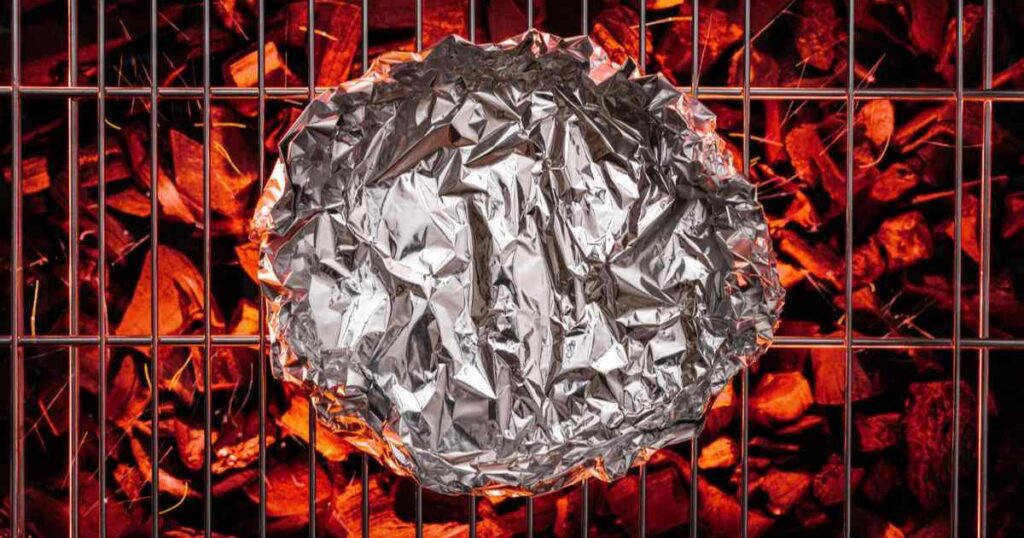
Using aluminum foil on a charcoal grill has many advantages that can elevate your grilling game. Let’s explore these benefits one by one:
Protecting the Grill Grates:
The aluminum foil acts as a protective barrier between the food and the grill grates. This is especially useful when cooking small or delicate items like shrimp, fish fillets, or chopped vegetables that might otherwise fall through the gaps.
Placing the foil on the grates creates a stable surface for your food, ensuring even cooking and preventing any potential loss due to grill grate mishaps.
Preventing Food from Sticking to the Grill Grates:
One of the most frustrating aspects of grilling is when food sticks to the grill grates, leading to torn pieces and a messy grilling experience. Aluminum foil comes to the rescue by providing a non-stick surface for your food.
By lightly oiling the foil before placing your ingredients, you significantly reduce the chances of sticking, making it easier to remove the food intact once it’s fully cooked.
Easy Cleanup:
Grilling can be fun, but cleaning afterward can be daunting. Using aluminum foil minimizes the mess left on the grill grates. Once you’re done grilling, remove the foil and any food residue, and your grill grates will be relatively clean, requiring less effort in the post-grilling cleanup process.
Reducing Flare-Ups:
Aluminum foil can be a valuable tool to control flare-ups caused by dripping fats or marinades. By creating a barrier between the food and the coals, the chances of outbreaks are reduced, allowing you to maintain better control over the cooking process and avoiding potential burning or charring of your culinary creations.
Embracing these advantages allows you to explore new culinary possibilities on your charcoal grill, experimenting with a wide array of dishes that can benefit from the convenience and practicality of aluminum foil.
Disadvantages of Using Aluminum Foil on Charcoal Grill
While using aluminum foil on a charcoal grill can offer several benefits, it’s essential to be aware of its potential drawbacks to make informed decisions about your grilling techniques. Let’s explore some of the disadvantages:
Hinders Proper Grilling:
When aluminum foil is used extensively on the grill, it can hinder the direct contact between the food and the open flames or hot coals. This direct contact is essential for achieving the signature smoky flavor and beautiful grill marks on certain dishes, such as steaks and burgers. The foil acts as a barrier, reducing the direct heat exposure and, consequently, impacting the overall grilling experience.
Blocks Heat and Smoke:
Aluminum foil can act as an insulator, preventing the transfer of heat and smoke to the food effectively. Grilling relies on the heat and smoke imparted by the coals to infuse flavors into the food. Using too much foil or wrapping the food too tightly, you might miss out on the authentic smoky taste that makes charcoal grilling unique.
Increases Cooking Time:
Cooking with aluminum foil on a charcoal grill can increase cooking times, especially for more significant cuts of meat or dense vegetables. The foil creates a barrier that slows the cooking process, as the food isn’t exposed directly to the full intensity of the grill’s heat. While this can benefit some dishes, it might be less ideal for others, mainly if you aim for quicker cooking times.
It’s essential to strike a balance when using aluminum foil on the grill, knowing when and how to incorporate it to optimize the cooking process while preserving the unique aspects of charcoal grilling. By being mindful of these potential disadvantages, you can make educated choices and adapt your grilling techniques to achieve the best possible results.
Other Uses of Aluminum Foil on Charcoal Grill
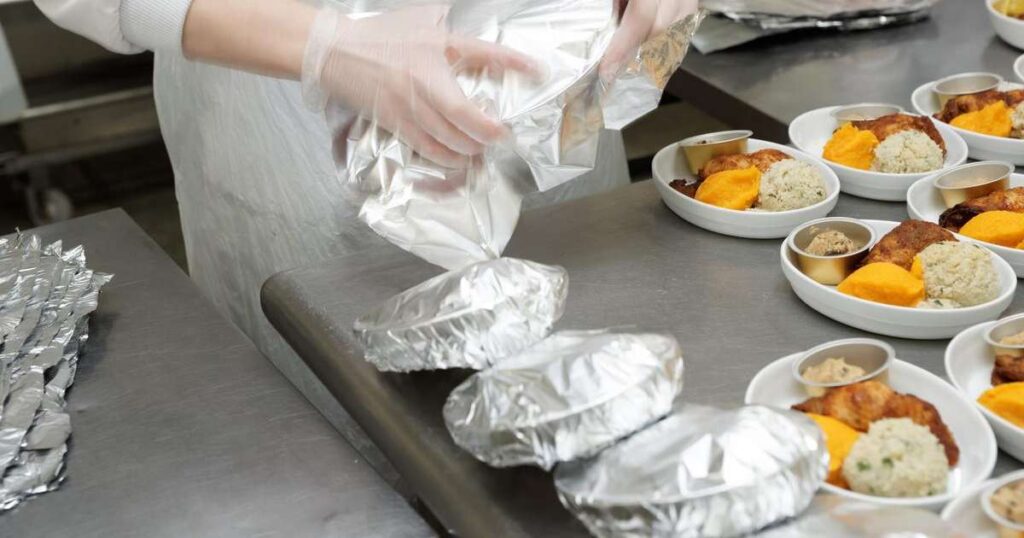
Aluminum foil is a versatile tool on the charcoal grill, offering more than just a protective wrapping for food. Let’s explore some creative ways to use aluminum foil that can elevate your grilling experience:
Using Aluminum Foil as a Cooking Vessel:
Apart from wrapping food in foil packets, you can use aluminum foil as a cooking vessel. Create a makeshift bowl or tray with the foil and cook items like stuffed mushrooms, shrimp scampi, or even delicate desserts like grilled fruit with honey. The foil acts as a heat conductor, allowing for even cooking while retaining flavors and juices.
Using Aluminum Foil to Keep Food Warm:
Serving all the dishes simultaneously can be challenging when hosting a barbecue party or a gathering. Aluminum foil comes to the rescue here! Once a container is cooked to perfection on the grill, you can loosely cover it with foil to keep it warm until it’s time to serve. This method ensures that your food remains hot and delicious when your guests are ready to enjoy it.
Using Aluminum Foil to Smoke Food:
If you’re keen on experimenting with smoking food on your charcoal grill, aluminum foil can play a crucial role. Create a small foil pouch filled with aromatic wood chips, such as hickory or mesquite, and puncture some holes on top.
Place this pouch directly on the hot coals, and as it smolders, it will release flavorful smoke that infuses your food with a delectable smoky essence.
Using Aluminum Foil for Custom Grilling Surfaces:
You can fashion custom grill surfaces using aluminum foil to cook specific foods. For example, you can create a foil surface with raised edges for grilling delicate fish fillets, preventing them from sticking and breaking apart. Or you can shape the foil to create individual compartments for grilling different vegetables separately.
These alternative uses of aluminum foil expand your grilling repertoire, allowing you to be creative with your cooking techniques. From serving as a vessel for new and exciting dishes to providing clever solutions for grill-related challenges, aluminum foil is an indispensable tool in charcoal grilling.
Alternatives to Using Aluminum Foil on Charcoal Grill
While aluminum foil offers various benefits on the charcoal grill, some grillers may prefer alternative methods for cooking and grilling. Here are some practical alternatives to using aluminum foil:
Using a Grill Basket:
A grill basket is a fantastic alternative to aluminum foil for cooking smaller or delicate foods on the grill. These baskets typically have small holes or perforations that allow the heat and smoke to penetrate the food while preventing it from falling through the grill grates. You can quickly grill vegetables, seafood, and even more minor cuts of meat in a grill basket, achieving delicious results without needing foil.
Using a Grill Mat:
Grill mats are non-stick, heat-resistant sheets of materials like PTFE (polytetrafluoroethylene) or silicone. They are placed directly on the grill grates, providing a smooth and easy-to-clean surface for cooking.
Grill mats are perfect for cooking delicate foods that might otherwise stick to the grates or fall apart. They also allow the smoky flavors to infuse your dishes without hindering direct contact with the heat source.
Using Parchment Paper:
For specific grilling tasks, such as cooking fish en papillote (in parchment paper), you can use parchment paper as a substitute for aluminum foil. Wrap your fish, herbs, and vegetables in parchment paper to create a sealed packet. The paper will allow steam to build inside, resulting in a moist and flavorful dish without any metallic taste.
Using Stainless Steel or Cast Iron Cookware:
For certain foods that require more substantial cooking vessels, you can use stainless steel or cast iron cookware on the grill. These materials’ skillets, griddles, and grilling pans are excellent choices for searing meats and achieving those sought-after grill marks.
Choosing the suitable alternative depends on your specific grilling needs and preferences. Whether you opt for a grill basket, mat, parchment paper, or specialized cookware, each option offers unique advantages that can enhance your grilling experience.
Cleaning up Aluminum Foil from Charcoal Grill
Cleaning up aluminum foil from your charcoal grill is a straightforward process, but it’s essential to do it properly to ensure the grill remains in top condition for future use. Follow these steps to clean up the foil efficiently:
Allow the Grill to Cool Down: Ensure the coals have completely cooled down before cleaning the grill. Trying to clean while the grill is still hot can lead to burns or injuries.
Remove Larger Pieces of Foil: Gently remove any larger pieces of aluminum foil from the grill grates using tongs or a spatula. Be cautious not to scrape or damage the grates during this process.
Fold and Discard the Foil: Carefully fold the used aluminum foil, enclosing any food residue or ash, and dispose of it properly in a designated trash container.
Scrape Off Residue: After removing the larger foil pieces, you may notice some residue stuck to the grill grates. Use a grill brush or a ball of crumpled aluminum foil to scrub the grates and remove any remaining debris gently.
Wash the Grates: If there are still stubborn bits of food or residue, wash the grill grates with warm soapy water. Ensure the grates are thoroughly rinsed and dried before using the grill again.
Check and Clean the Bottom of the Grill: If any foil ash or residue has fallen to the bottom of the grill, carefully remove it. Depending on your grill model, you can detach the ash catcher to clean it more easily.
Dispose of Foil Responsibly: Remember to recycle the used aluminum foil whenever possible to minimize environmental impact.
Following these cleaning steps, you can efficiently remove aluminum foil from your charcoal grill and maintain its cleanliness for future grilling sessions. A clean grill not only ensures safe and hygienic cooking but also helps preserve the longevity of your grill for many more delicious barbecues to come.
Frequently Asked Questions (FAQs)
Can you put aluminum foil directly on the charcoal?
It is not recommended to put aluminum foil directly on the charcoal itself. Direct contact with the hot coals can cause the foil to catch fire or melt, creating a potential safety hazard. Instead, use aluminum foil on the grill grates to create a barrier between the food and the heat source.
Is it OK to grill with aluminum foil?
Yes, it is safe to grill with aluminum foil when used correctly. Aluminum foil can be a valuable tool for cooking and grilling, especially for delicate foods or items that may fall through the grill grates. Just ensure you follow safety guidelines and use heavy-duty foil designed for grilling.
Can I use an aluminum pan on a charcoal grill?
Yes, you can use an aluminum pan on a charcoal grill. Aluminum pans are convenient for cooking certain foods or for indirect grilling. They can help contain liquids or capture drippings, making cleanup easier. Just be cautious of flare-ups if the pan is directly over hot coals.
Can I grill burgers on aluminum foil?
Yes, you can grill burgers on aluminum foil. To do this, create a foil packet or mold the foil into a makeshift grill tray to cook the burgers. The foil will help prevent sticking and retain the burger’s juices while cooking. Alternatively, you can use a grill basket or mat for a similar effect.
Can I use stainless steel on the grill?
Yes, you can use stainless steel on the grill. Stainless steel cookware, grilling baskets, and grates are excellent alternatives to aluminum foil for grilling. Stainless steel is durable, heat-resistant, and non-reactive, making it suitable for high-temperature cooking on the grill.
Conclusion
Using aluminum foil on a charcoal grill can be valuable for grilling enthusiasts. It offers advantages such as protecting the grill grates, preventing food from sticking, and facilitating easy cleanup. However, it’s essential to be mindful of its limitations, like hindering direct grilling and blocking some heat and smoke.
To safely use aluminum foil, follow the guidelines and consider alternative methods like grill baskets, mats, or parchment paper. Whether you choose aluminum foil or explore other options, grilling is all about creativity, experimentation, and the joy of sharing delicious meals with loved ones. So, fire up your charcoal grill, embrace the art of outdoor cooking, and savor the flavors of a well-grilled feast!

